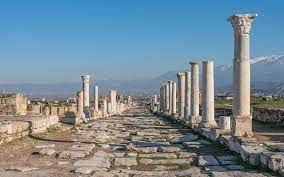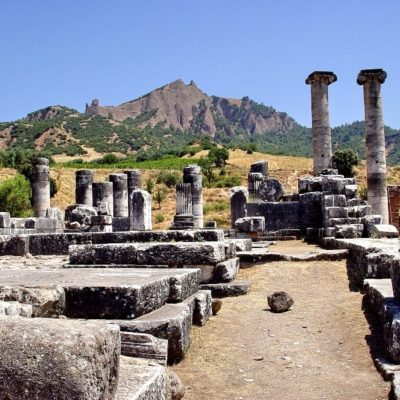The Church of Nigeria

The Church of Nigeria Anglican Communion is a Bible based self-supporting church that claims a genuine love of Christ. The Anglican Communion began in England and spread to the English colonies, especially in Africa.
They believe evangelism is a key obligation of the Church and of all believers. They convey evangelism of the knowledge of Jesus Christ and His goodness from one believer to another through both preaching and Bible Studies. They teach that all Christians must be devoted and seek the truth through prayer, devotion, meditation, and continuous studying of the Bible.
The Church of Nigeria considers itself a democratic, welcoming church. They claim their members are committed to establishing co-operation with members of other faiths and religions.
Their national administrative headquarters is in Abuja, Nigeria. They have 78 dioceses in 10 ecclesiastical provinces.
The Archbishop of Nigeria, Peter Akinola, is a conservative leader within the Anglican Communion. He was upset by the ordination of the openly gay Gene Robinson as Bishop of the Episcopal Diocese of New Hampshire in 2003, believing it would split the Anglican Communion. Akinola declared the Church was in “impaired communion” with the Episcopal Church USA on November 21, 2003.
On November 12, 2005, the Church entered into a “Covenant of Concordat” with the Reformed Episcopal Church and the Anglican Province of America. They do not recognize the ECUSA.
The Church of Nigeria (Anglican Communion), the Reformed Episcopal Church, and the Anglican Province of America share a common heritage of faith and tradition. They understand that they are working together in the common cause of the Gospel of Jesus Christ. The Churches pledged that those individual congregations that are within proximate geographic locations will work closely and cooperatively to demonstrate their commitment to one another. They pledge that they would commit to one another to witness to a consistent Biblical, Evangelical and Catholic expression of faith in Jesus Christ.
They also declared their intention to initiate a process that will permit an agreement of full communion with a clear and common understanding of their entire membership. They agreed that the communicants of the Churches could be received into the other churches by presenting a letter of transfer within their denominations.
History
Christianity came into Nigeria in the 15th century, beginning with Augustinians. The Reverend Henry Townsend of the Church Missionary Society, along with Samuel Adjai Crowther, are the first to bring Anglicanism in 1842. Crowther was probably the best known African Christian who was born into slavery. He was baptized by the Reverend John Rahan, of the Anglican Church Missionary Society and he took the name Samuel Crowther and was appointed a schoolmaster of the mission in Sierra Leone. He later became the first African Church Missionary Society Bishop and he translated the Bible from English to Yoruba. The Reverend Henry Townsend, Samuel Adjai Crowther, and C.A. Gollmer who was a German missionary, along with carpenters, builders and teachers went to the Yomba community to establish a new Christian community.
In 1846, the now Reverend Samuel Ajayi Crowther, the Reverend Henry Townsend, and the Reverend Golmer consolidated the Church of Missionary Society Yoruba Mission. 1857 Reverend Samuel Ajayi Crowther led the Church of Missionary Society Niger Mission to Onitsha. He was elected Bishop in 1864. Anglicanism was later based in Lagos, which became a diocese on December 10, 1919.
The Church of Nigeria continued to grow until there were 16 dioceses in Nigeria constituted into the Province of Nigeria. On February 24, 1979, the Bishop of Ibadan, the Rt. Reverend. Dr. Timothy O. Olufosoye, Archbishop, Primate and Metropolitan, and the Rt. Reverend Dr. Timothy O. Olufosoye created 8 dioceses. The diocese of Abuja was inaugurated on November 26, 1989.
The church of Nigeria (Anglican Communion) was split into three Provinces September 20, 1997 for the purpose of management.
Province One consisted of the Dioceses in the West, headed by Archbishop Adetiloye who remained Primate of All Nigeria.
Province Two consisted of the Eastern Dioceses had J. A. Onyemelukwe, Bishop on the Niger, as Archbishop.
Province Three consisted of the Northern Dioceses had the Bishop of Abuja, the Rt. Reverend Dr. Peter J. Akinola as Archbishop.
Belief
The Church of Nigeria believes the Holy Scripture contains all things necessary for salvation. They believe all things must be proved from Scripture. They believe the Holy Scripture is the Old and New Testament and has never been doubted within the church. They do not believe the Old Testament is contrary to the New Testament. They believe the Old and New Testaments contains the offer to mankind for eternal life through Jesus Christ and that he is the only mediator between God and man.
They believe in the Apostles’ Creed and the Nicene Creed as well as the Athanasian Creed because they can be proven through the Holy Scriptures.
They believe there is only one living and true God. They believe God is eternal and without body, indivisible and invulnerable. They believe God is of infinite power, goodness and wisdom. They believe God is the maker and preserver of all things visible and invisible and that God in three persons who are of one substance, power and eternity. The three persons are believed to be the Father, the Son, and the Holy Spirit and are identical in substance, power and in eternal existence. They believe God is everlasting without beginning or without end.
The Church of Nigeria believes the Son is the Word of the Father, who was begotten from eternity of the Father and became truly man. They believe the Son is the true and eternal God of one substance with the Father. They believe the Son took the nature of man in the womb of the Blessed Virgin Mary, of her substance, in such a way that two whole and perfect natures were joined together in one person and can never be divided. They believe there is one Christ who is true God and true Man.
They believe Jesus Christ suffered, was crucified, died, and was buried, to restore a right relationship between the Father and man. They believe Christ was sacrificed for original guilt and for actual sins of men. They also believe Christ died and was buried and descended into the realm of the dead until Christ rose again from the dead and took again his body being of flesh, bones and all that belongs to the completeness of the nature of man. They believe he ascended in his body into heaven, where he now is seated until the last day. They believe on the Last Day He will return to judge all men. The Church of Nigeria believes it is only in the name of Jesus Christ that men must be saved according by Holy Scripture.
The Church of Nigeria believes the Holy Spirit proceeds from the Father and the Son. They believe the Holy Spirit is of one substance, majesty, and glory with the Father and the Son.
They believe original sin is found in the nature of every person who descended from Adam. Because of this, they believe man is not in a state of righteousness. They believe the sinful nature in man always desired to behave contrary to the Spirit. They believe there is no condemnation for those who believe and are baptized.
They believe that they have no power to do good works which are pleasing and acceptable to God unless the grace of God through Christ goes before man so man may have a good will, and continues to work with in man.
They believe man is considered righteous before God solely on account of the merit of Jesus Christ out Lord and Savior. They believe it is not on account of man’s own good works or of what man deserves. They believe man is justified by faith alone.
They believe good works are the fruits of faith and follow on after justification, which can never atone for sins. They believe works done before receiving the grace of Christ and the inspiration of His Spirit are not pleasing to God.
They believe Christ alone is without sin. They believe since Christ took human nature and was made as man in every respect except that of sin. They believe Christ is the Lamb without blemish and by His sacrifice of Himself should take away the sins of the world. They believe Christ was without sin. They believe if we say we have no sin, we deceive ourselves and the truth is not in us.
They believe after receiving the Holy Spirit, man may depart from the grace given to man and fall into sin, and may also by grace of God return and amend their lives. They believe anyone who claims they are incapable of sinning after they have been baptized, are to be condemned as well as those who deny the opportunity of forgiveness to those who truly repent.
The Church of Nigeria believes the eternal purpose of God is predestination to life. They believe before the foundations of the world God had decreed by His counsel to choose some to be delivered from damnation. They believe these are those God has chosen in Christ out of mankind to bring through Christ to eternal salvation. They that are chosen are called according to the purpose of God by His Spirit, at an appropriate time. They believe it is by grace they obey the calling from God, and they are freely justified and are made sons of God by adoption. They believe they are made like the image of His only-begotten Son Jesus Christ, and they walk faithfully in good works.
They believe the sacraments are instituted by Christ and are a effectual sign of the grace of God and that it is through the sacraments that God works invisibly within man by bringing to life, strengthening and confirming faith in Him. They believe there are two sacraments that are instituted by Christ in the Gospel…the Baptism and the Lord’s Supper. They also believe in five sacraments that are not regarded as Gospel sacraments which are confirmation, penance, ordination, marriage, and unction.
The Church of Nigeria believes Baptism is a sign of regeneration, or a new birth, and those who receive baptism in the right manner are brought into the Church with the promises of the forgiveness of sin and adoption as sons of God by the Holy Spirit. They believe those being baptized are visibly signed and sealed, and their faith is confirmed, and grace is increased by virtue of prayer to God.
They believe the Lord’s Supper is a sacrament of redemption through the death of Christ and is offered to those who rightly, worthily and with faith receive it. They believe the bread which they break is a partaking of the body of Christ and the Cup of blessing is a partaking of the blood of Christ. They believe the changing of the substance of the bread and wine, called transubstantiation, in the Lord’s Supper cannot be proven from Holy Scripture. They believe the body of Christ is given, taken, and eaten in the Lord’s Supper only in a heavenly and spiritual manner and is received and eaten by faith. The Church of Nigeria believes the Lord’s sacrament should be administered to all Christian people alike and should not be denied to the laity.
They believe there is no command or decree of God that their bishops, presbyters or deacons take a vow of celibacy or abstain from marriage.
The Church of Nigeria believes the power of the Civil Magistrate extends to all men in worldly things. They believe the Civil Magistrate has no authority in things that are purely spiritual. They believe all Christians be respectful obedience to the civil authority. They believe it is lawful for Christian men to carry weapons and serve in wars if it is commanded of the state.
They believe the vain and rash swearing of oaths is forbidden by Christ to Christians. They do not believe it is wrong to swear an oath if the State requires it.
Cite Article Source
MLA Style Citation:
Holstein, Joanne “The Church of Nigeria:.” Becker Bible Studies Library Jan 2006.<https://guidedbiblestudies.com/?p=2632,>.
APA Style Citation:
Holstein, Joanne (2006, January) “The Church of Nigeria:.” Becker Bible Studies Library. Retrieved from https://guidedbiblestudies.com/?p=2632,.
Chicago Style Citation:
Holstein, Joanne (2006) “The Church of Nigeria:.” Becker Bible Studies Library (January), https://guidedbiblestudies.com/?p=2632, (accessed).


